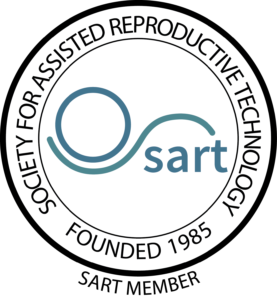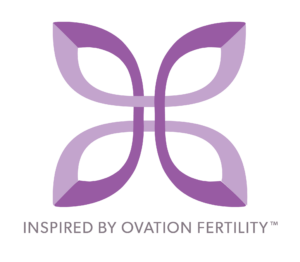Ovarian reserve is an important indicator our Nashville fertility doctors use to evaluate a woman’s potential for getting pregnant
Ovarian reserve refers to the approximate supply of oocytes, or eggs, in a woman’s ovaries, and it is a very important indicator of a woman’s fertility. Our Nashville fertility doctors frequently order ovarian reserve testing in conjunction with an infertility evaluation.
When a female is born she has her lifetime supply of eggs, usually about 1 to 2 million. By the time a girl has her first period, that number is usually around 300,000 to 400,000. With each menstrual cycle multiple eggs begin to grow and as the group matures one follicle becomes dominant. In any given month, this one dominant follicle will release an egg during ovulation. Most of the time in a normal monthly cycle one egg is released and the other non-dominate follicles will undergo atresia. This monthly process slowly depletes the number of eggs contained in the ovaries.
The rate at which a woman loses eggs depends on the individual, her genetics and her health. Most women experience peak fertility before age 30, and fertility begins to decline more rapidly after age 35.
The importance of ovarian reserve testing, ORT
Ovarian reserve testing provides our Nashville fertility doctors with important information about a woman’s current and future fertility potential. We can determine whether or not a patient has diminished ovarian reserve. Diminished ovarian reserve occurs when a woman has fewer eggs and a lower ovarian reserve than we would normally expect to find in a woman her age. The results of ovarian reserve testing can also help our Nashville fertility doctors devise an individualized treatment plan.
We have several different options to measure ovarian reserve, and you can expect to have more than one test for more detailed results.
Blood testing—Blood tests are used to measure certain hormones important for pregnancy, including FSH, or follicle-stimulating hormone, estradiol and AMH, or anti müllerian hormone. These tests are an important part of ovarian reserve testing.
FSH is a hormone secreted by the pituitary gland that makes egg-containing follicles grow. FSH and estradiol work hand in hand. During the beginning of the cycle, as the follicle grows and the eggs mature, the follicle releases estradiol. The release of estradiol tells the pituitary gland it’s time to make less FSH. The exact coordination of these two hormones is important because if FSH starts to rise too early, it causes faster production of estradiol, and the egg and follicle develop too quickly, causing the eggs to mature improperly. FSH and estradiol are usually measured on days 3-5 of the menstrual cycle.
AMH also needs to be measured during ovarian reserve testing. This hormone, which is produced in the granulosa cells of the ovarian follicles, directly relates to the number of eggs. AMH may be measured at any time during the menstrual cycle.
Antral follicle count—Another test our Nashville fertility doctors may do is an antral follicle count. This test involves a transvaginal ultrasound, which is performed in the early days of the menstrual cycle. The ultrasound allows our doctors to count the number of antral follicles in the ovary, the place where eggs develop. The purpose of this test is two-fold—it tells our Nashville fertility doctors how many eggs are available for pregnancy and also how the woman may respond to gonadotropin medicines, which are hormone medications we give to women for ovarian stimulation.
Our Nashville fertility doctors help women find answers to their infertility problems
Ovarian reserve is just one of the important clues our Nashville fertility doctors consider when evaluating a woman’s fertility. Contact us to find out how we can help you find the answers you seek about getting pregnant.






